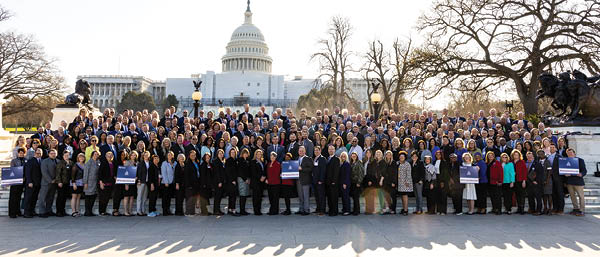Pins and Posts: September 2023
A Focus on Career Readiness Is Needed

“Reinventing High Schools: The Importance of Exposing Every Young Person to the World of Work,” a policy brief from the Progressive Policy Institute, calls for a reinvention of our public high schools over the next decade to place as much emphasis on career readiness as on college prep. Currently, most students don’t have access to high-quality career learning experiences, notes Taylor Maag, the brief’s author, because the education system still overemphasizes college prep coursework and advising. “This work is more important now than ever to ensure our nation’s education system creates paths to greater economic opportunity and avoids leaving millions of young people behind, especially those who don’t go to college,” she writes. The brief, which includes profiles of successful programs, offers three policy recommendations:
- Give every high school student a chance to participate in high-quality work-based learning.
- Boost public investment in youth career-development efforts and make it more effective.
- Build strong cross-sector partnerships.
Read the full brief at bit.ly/435VyDI.
Experiences and School Culture Matter Most for Students

Student learning is about much more than content. In fact, the most important things schools can do for students are to challenge them to work hard, foster engagement and study skills, and cultivate supportive connections with peers and teachers, according to “Investing in Adolescents: High School Climate and Organizational Context Shape Student Development and Educational Attainment,” a report from the UChicago Consortium on School Research. “Our findings strongly suggest the need to take a more holistic view of both adolescents and schools,” says Kirabo Jackson, one of the report’s authors and the Abraham Harris Professor of Human Development and Social Policy at Northwestern University. “These findings advance our understanding of how to support student success and prepare students for the future. They also make explicit the disconnect between current metrics for assessing school quality and what high-quality schools are actually doing to promote student development.” Read the full report at bit.ly/42I5Yda.
We Are All Advocates

The 2023 National School Leaders Advocacy Conference brought 400 school leaders—members of both NASSP and NAESP—from across the country to Washington, D.C., to discuss key K–12 education issues and meet with lawmakers on Capitol Hill. Beth Houf, the principal of Capital City High School in Jefferson City, MO, shared how being surrounded by passionate educational leaders reenergized her during an especially trying time in education. “Our work at the conference is an example of amplifying the voices of school leaders at the national level, but advocacy can start with a single interaction—even within your own community,” she noted. “Remembering that we advocate every time we talk about our profession is essential. Each interaction with a district official, community leader, legislator, parent, and student can have a lasting effect.” Houf offered tips for school leaders about how to organize their thoughts and make their advocacy pitch concise and effective. Read more at bit.ly/3OlNf2y.
A Playbook for Reducing Student Absenteeism

Alarming rates of student absenteeism continue even as the worst of the pandemic is behind us. A report from Attendance Works and FutureEd shows the devastating impact. By ninth grade, a student’s chance of graduating from high school drops by 20% for every week of school missed, according to one study. With “Attendance Playbook: Smart Solutions for Reducing Student Absenteeism Post-Pandemic”, the two organizations seek to help policymakers and educators respond to this crisis. The playbook includes “more than two dozen effective, readily scalable approaches, covering topics ranging from family engagement to the value of attendance incentives and students’ social and emotional well-being.” It also avoids punitive approaches in favor of strategies that “promote conditions that strengthen the educational experiences of all students: rigorous instruction that is relevant to students’ lives; a safe, welcoming school climate; and stronger bonds between students and teachers.” Read the full report at bit.ly/43mqArp.
